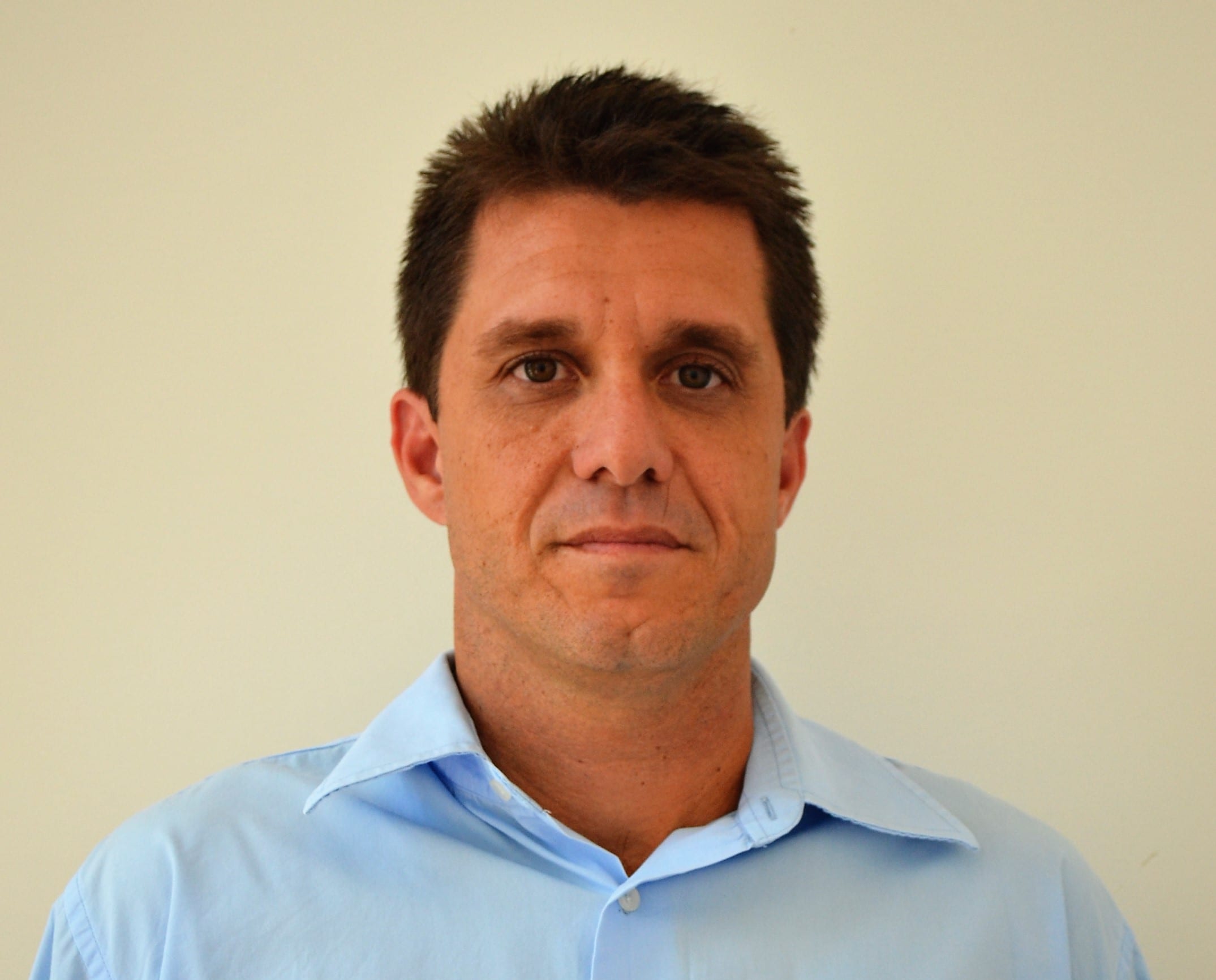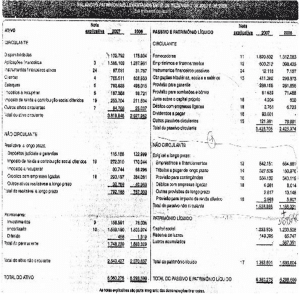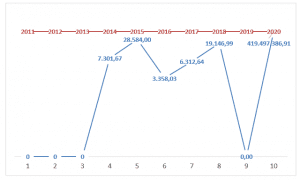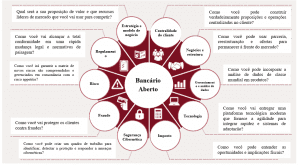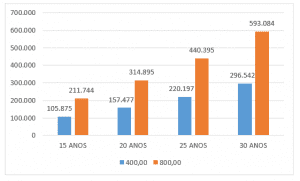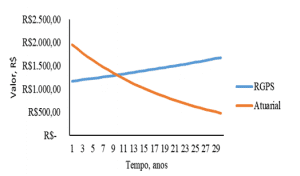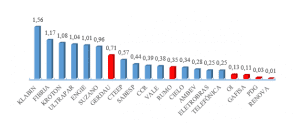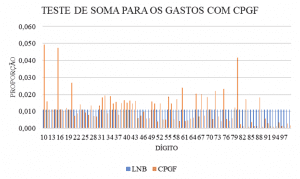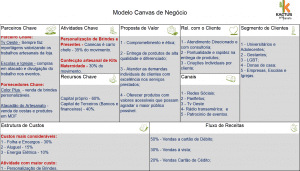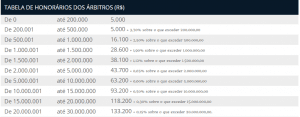PEREIRA, Tarso Rocha Lula [1]
PEREIRA, Tarso Rocha Lula. Motivations, Expectations and Graduation-related Influences on Accounting. Multidisciplinary Core scientific journal of knowledge. 03 year, Ed. 06, vol. 05, pp. 132-148, June 2018. ISSN:2448-0959
Summary
This research investigated the motivations, expectations and graduation-related influences on Accounting in institutions of higher education located in Natal in Rio Grande do Norte, based on assessments and perceptions of your students, taking into account the Human Capital theory. It is a descriptive, bibliographical and documentary research. The survey instrument applied to 177 students of both institutions, collected between 22/11/13 to 29/11/2013, representing 21% of the population investigated. To perform the statistical analysis of the data SPSS software was used. It was observed that the main variables that motivated respondents to join the undergraduate program were "getting more knowledge", the "professional" differentiation and expansion of employment opportunities "; the main expectation reached referred to the main motivation in getting more knowledge, followed by expansion of general education "; and, as main factors influenced by course was the professional maturity; and the main reason for the choice of your graduation the intrinsic desire course. Suggesting that the top-level training influences positively on the professional performance of those that do, confirming the assumptions of the theory of Human Capital as for your employability, increase productive capacity and wage rise.
Keywords: Motivation, Expectations, influences, Human Capital, accounting.
1. Contextualization
The National Institute of Educational Studies and research (INEP) in 2005 disclosed that the Accounting course was offered in 1,002 higher education institutions (HEIs), possessing a greater amount of private institutions. Such information was being disclosed by virtue of the National Examination performance of students (ENADE), which consists of a proof for the pupil, Student Assessment Survey of higher education (ADES), course coordinators questionnaire and the perception the student about the proof. Thereby, the ENADE the search student learning and professional skills acquired in your path by the institution which he attended.
Yet, according to the INEP (2009), the ENADE aims to evaluate the performance of students with regard to the contents provided in the undergraduate curriculum guidelines, the development of competencies and skills needed to deepening of General and vocational training, and the update level of the students regarding the brazilian and world reality. In this sense, Silva et. Al. (2005) present the choice of UNIVERSITIES rests on private institutions for these practice exams less selective vestibular and mostly undemanding. The findings on this subject have been guided on the quality of private and public Institutions, as well as in the quality of professionals that are inserted in the labour market, and yet, considering the Human Capital theory argues that there is influence on increasing of wages that those with greater accumulation of knowledge will get.
In this way, increasing the investment in human capital, the greater the compensation. Taking into account the here commented, this study seeks to carry out a descriptive analysis of the socio-economic profile of students of two UNIVERSITIES in the city of Natal in the State of Rio Grande do Norte, and is a private and a public IES IES, seeking to investigate the existence of a possible influence of type of IES in the formation of the counter, and mainly, search the expectations and motivations of undergraduate students in accounting, verifying that these expectations were maintained or modified during of course.
There is an understanding that students may not have the same professional aspirations when opting for the course, which can lead to a deficiency in the training and qualification for specific area that the students have in mind (DE LANGE, JACKLING and GUT, 2006).
This type of evaluation is important because it shows whether there is an alignment between the expectations of students in accounting, with the investment made in the search for increased Human Capital, and if there is a service of these expectations, as well as the study may serve as a basis for the management of higher education institutions to verify if the service you are providing is helping to meet the expectations of future alumni. To this end, we seek to answer the following question: what influences, expectations and motivations of undergraduate students in accounting?
This article is structured as follows: after the context is presented the theoretical reference pertaining to subject searched, followed by methodological procedures, and as a result, analysis of the results and considerations finals.
2. Theoretical framework
2.1 Human Capital
The Human Capital theory is based on the concept that the acquisition of more knowledge and skills increases the value of human capital of individuals, increasing your employability, productivity and income potential (MALIK and MOUNT, 2010, p. 03).
Chiavenato (2004) for the individual must have some differential that values: knowledge, skill and competence. It must be always in search of new knowledge of growing and continuous way. Knowing how to use the knowledge acquired in the appropriate moments. And the use of knowledge is done so as to optimize the expected results.
All who have qualifications and skills acquired the feature, because it sought a greater knowledge in their areas of expertise. Part of these, because they believed that more education would bring them higher income in their jobs, corroborating Borjas (2010) in your assertion that education and other forms of training are valued only because they increase the gains. According to Malik and Lot (2010) the human capital brings an idea that education and the qualifications measured as amount may be indicative of volume of knowledge, skills and attitudes acquired, which will enhance the capacity for work and production.
Human Capital is seen by the student is the top level course sought by him, graduation in accounting that is done with the intent of professional growth. Lima (1980) points out that the Theory of Human Capital follows a sequence, because after education, people have their skills and knowledge changed to better effect of this education, and the more you study, the greater the increase of their cognitive skills and your productivity, and thus the greater your productivity, and consequently, the greater your income.
2.2 Education
In Brazil there is the National Evaluation System of higher education (SINAES), supported by the law and by Ordinance 14/04/04 of 10,861 2,051 of 09/07/04, that evaluates the IES and the academic performance of its students, with the application of ENADE and other evaluations taking charge of the INEP.
As Ferreira (2008) the economic growth of a country is influenced by human capital, for influence in the creation of technology, since people more able perform more work, or work of better quality, in the same period of time, raising your productivity.
"People have a uncanny ability to learn and develop. Education is at the core of this capability "(CHIAVENATO, 2004, p. 334).
Education is crucial in the growth of a country, corroborating the theory of human capital. Under this reasoning, the degree increases this investment in search of better training.
An increase in human capital goes through education, and in the current brazilian situation, by graduation. Thus, the degree in accounting Sciences adds to this effect.
In research conducted by Niyama, Marie and Agrawal (2007) it was found that the level of quality of education in accounting has close relationship with the prestige of the profession. Such a conclusion may indicate that motivations and expectations possibly influence in choosing a degree course.
2.3 Graduate
Second Would et al. (2004) from the time when the student decides to do a degree course in particular IES, it demonstrates that he is investing in your career and the assessment of the institution, as well as the quality of your teaching, is a differentiator in this curriculum students.
For Lagioia et al. (2007) the knowledge received by the student in graduation should affect significantly their expectations and future career choices, which will enhance the teaching-learning process. In these studies demonstrates that the graduate has your role in training and completion of professional knowledge.
However, in the study of Shmidt et al. (2012) the undergraduate in accounting probably aren't meeting the needs of the market, which encourages the student to a quest for the development of new skills. Only in the polls here cited, as well as of Martins and Lot (2010) pointed in the direction that the degree in accounting Sciences supplies with the necessary knowledge, because it found that of those who seek a specialization, the minority search for deficiencies presented at graduation.
On Curricular Guideline 0289/2003, adopted on 12 February 2004 (BRAZIL, 2004, p. 4), the forming of Accounting course should have knowledge of:
undergraduate courses in accounting, Bachelor's degree, should include, in their educational projects and in your curriculum organization, content that reveal knowledge of the economic and financial scenario, national and international levels, in order to provide the harmonisation of international accounting standards […]
Graduating in the top level had in 1992, established by the Federal Council of education (CFE), with resolution No. 03, minimum content, as well as the duration of undergraduate courses that specifically in accounting was set at 2,700 hours/ class, which should be paid in a maximum of seven years and at least four. Also, normatizou to the SBI to develop curricula setting professional profile to be formed.
Resolution No. 10 of the National Education Council/Board of higher education, in your article 3, determines, among others, that the undergraduate degree in accounting should provide conditions for the accountant is able to understand the issues scientific, technical, economic and financial, social, national and international level and in different models of organization.
It turns out that the degree in Accounting has a standardization that determines some criteria that must be considered for the formation of the counter is considered satisfactory.
3. Methodological procedures
According to Raupp and Beuren (2008) searches are defined in three categories: how to, which includes the exploratory research, descriptive and explanatory; as for the procedures, which covers the case study, survey, the bibliographical research, experimental and documentary; and how to approach the problem, which includes quantitative and qualitative research.
3.1 search Classification
Taking into account the your goal, the research is classified as descriptive, based on Gil (2002, p. 42) which States that this type of research has aimed "the descri[…]ption of the characteristics of a particular population or phenomenon or the establishment of relations between variables ".
In relation to the procedures it is a case study, is restricted to a particular group (see references) having used also documentary research which, according to Samuel-Silva, Almeida and Guindani (2009), is due to materials that have not yet received analytical treatment, i.e. the primary sources. How to approach the problem this is characterised as quantitative, as it was used the Excel software for data analysis, and statistical tests in SPSS, however, even considering that the essence of the work is quantitative, not deleted qualitative analysis when they analyze the characteristics of the sample.
3.2 Population and sample
The population is composed of two higher education institutions (HEIs) located in Natal in the State of Rio Grande do Norte, with the Centro Universitário FACEX (UNIFACEX), private INSTITUTIONS of HIGHER EDUCATION, and the Federal University of Rio Grande do Norte (UFRN), public INSTITUTIONS of HIGHER EDUCATION. The sample used in this survey was conducted through a non-probability selection for convenience, being selected the institutions more accessible to research.
The universe of undergraduates in accounting, in seven classes searched in night of the two UNIVERSITIES, 838 students and the sum total amount of questionnaires answered and validated totaled 177, representing an index of answers of 21.12%.
The sample was probability sampling type used in this research was by conglomerate. Thus, the sample size was calculated by the following formula:
n = (N x n0)/(N + n0)
Where:
N = Population Research
And the sampling Error tolerable = 5 =%
on = fixed sample size, which is found by the formula:
N0 = 1/(E02)
n = sample size
Based on the sample size calculation was as follows:
Questionnaires were applied to 270, and this amount was divided between the two UNIVERSITIES. The payback was 177 questionnaires corresponding to 65.55% of questionnaires applied. Among the respondents, 50.85% corresponded to IES 49.15% private INSTITUTIONS of HIGHER EDUCATION.
The UNIFACEX were surveyed seven classes that make up the course of Accounting which are the first, second, fourth, fifth, sixth, seventh and eighth. The third period was not formed, and the course ends in the eighth.
At UFRN are ten periods, because the course takes two time periods in UNIFACEX to be done, however, to equate the results, the third, ninth and tenth UFRN periods were disregarded.
3.3 pre-test and research instrument validation
According to Lakatos and Marconi (2010), once drafted the questionnaire it is necessary that it be tested with some participants of a population selected to be scanned and being reworked the instrument of collection after the pre-test, case is necessary.
A pre-test was conducted, with the intention of verifying adherence to the problem researched, as well as the consistency of the instrument used, being a pre-test of the questionnaire with three students who exercise the monitoring function of different disciplines Accounting course. There was, also, a conversation with the three to check possible arrangements that would be made in adapting the questionnaire. With a view to improving and the improvement of the questionnaire, the pretest can be applied more than once (LAKATOS; MARCONI, 2010).
Following the suggestions expressed at the first pretest, a new research tool and a new pre-test with three other students, only later, then validated the research instrument. It is noteworthy that one of the points measured was the appropriateness of the questions that had previously been applied on the basis of a master's degree, as well as, the average response time, and found that the respondents took an average of eight minutes to the filling out the questionnaire. The previous survey had an open question about the choice of course. Based on the pre-test responders created close-ended questions on this aspect.
The pre-test was key to verify that the questions used in the survey of Martins and Lot (2010) that have been applied in masters of the area needed adjustment of complexity and depth in the questions, so that students graduating could better understand the questionnaire, but also, that his answers were better directed. In this way, the answers of the students were directed to a choice of two with a better evaluation, and two with a worse assessment of motivations, expectations and influences in relation to the course.
3.4 data collection
Face-to-face questionnaires were applied in the months of November and December of 2013 in two INSTITUTIONS of HIGHER EDUCATION of the city of Natal in the State of Rio Grande do Norte, as the UNIFACEX University Center, private and public the UFRN. The UNIVERSITIES were chosen for convenience, because the existence of access to students. The questionnaires were based on the study of Malik and Lot (2010) and your application has reached 90 students in UNIFACEX and 87 in UFRN.
3.5 data analysis technique
As a technique of analysis and interpretation of the data using the tab in Excel, as well as software, extracted to the statistical package SPSS 16.0.1, who provided the statistical and econometric tests, seeking to confirm the results checked on descriptive analysis.
4. Analysis of the results
Do et al. (2004) in your aferiram study the degree of satisfaction of students in accounting, and also identified some of the factors that influenced. It was noticed that the majority of students who chose Accounting believes in the opportunities offered by the course. In anticipation of the end of the course, most students opted for the alternative that more approached the activities related with the private sector rather than to provide an open, for example. As, also, about the Outlook after the course, there was a willingness to attend a graduate, with a view to an improvement in qualifying. On the degree of satisfaction of students, it has a positive opinion.
Milk Son (2004) in your research aimed to identify the perceptions of students of Accounting as to the possibility of attending grad school. A relevant number of them willing to do a postgraduate course.
The questionnaire seeking a better extraction of the students of the information necessary for a closer perception of reality as possible is divided into ID, previous activity's education in undergraduate admission, current Activity, Graduation and career, influences on graduation, why the choice of the course of Accounting, and other comments deemed necessary.
Some points fit be reported in advance to the analysis itself. On the factors that weighed in the decision of the student in making the undergraduate, Graduate and career item, Meet other undergraduate deficiencies, Meet other deficiencies and Improve the accounting activity that work already had low weight on decision considering that the minority had no degree, specialization or already working in accounting before starting the current graduation.
4.1 Profile of students surveyed
In this section will be exposed the results concerning the profile of the students participating in the research. Analyzed data on residence, marital status and sex of the respondents. The analysis with the participation of 50.85% of the responders and 49.15% UNIFACEX from UFRN. That is, the total of 177 participants are 90 research students linked to the private institution of public education and 87 of the IES.
Table 1-socio-demographic Data of the students surveyed
| Socio-demographic data | Specifications | Institution | Profile of responses per period (%) | ||||||
| 1st | 2nd | 4th | 5 | 6 | 7 | 8. | |||
| Sex
|
Male | UFRN | 82 | 50 | 89 | 50 | 65 | 60 | 69 |
| UNIFACEX | 27 | 33 | 23 | 50 | 21 | 69 | 50 | ||
| Female | UFRN | 18 | 50 | 11 | 50 | 35 | 40 | 31 | |
| UNIFACEX | 73 | 67 | 77 | 50 | 79 | 31 | 50 | ||
| Age
|
From 18 to 22 years | UFRN | 36 | 13 | 33 | 36 | 29 | 27 | 31 |
| UNIFACEX | 73 | 40 | 31 | 13 | 36 | 23 | 6 | ||
| From 23 to 27 years | UFRN | 18 | 63 | 67 | 36 | 24 | 60 | 54 | |
| UNIFACEX | 9 | 47 | 54 | 38 | 21 | 31 | 38 | ||
| Of 28 to 33 years | UFRN | 36 | 25 | 0 | 29 | 29 | 13 | 15 | |
| UNIFACEX | 0 | 13 | 15 | 38 | 29 | 31 | 31 | ||
| More than 33 years | UFRN | 9 | 0 | 0 | 0 | 18 | 0 | 0 | |
| UNIFACEX | 0 | 0 | 0 | 25 | 14 | 23 | 25 | ||
| Domicile
|
Christmas | UFRN | 73 | 88 | 56 | 86 | 53 | 73 | 85 |
| UNIFACEX | 55 | 20 | 46 | 50 | 64 | 46 | 38 | ||
| Great Christmas | UFRN | 27 | 13 | 44 | 14 | 47 | 27 | 15 | |
| UNIFACEX | 45 | 80 | 54 | 50 | 36 | 54 | 63 | ||
| Marital status
|
Married | UFRN | 36 | 13 | 0 | 21 | 41 | 0 | 23 |
| UNIFACEX | 9 | 0 | 15 | 25 | 36 | 54 | 31 | ||
| Single | UFRN | 64 | 88 | 100 | 79 | 59 | 100 | 77 | |
| UNIFACEX | 91 | 100 | 85 | 75 | 64 | 46 | 69 | ||
Source: survey data, 2013.
Classification analysis about the sex of the respondents belonging to the sample presented results antagonistic. The research points out that the students of public INSTITUTIONS of HIGHER EDUCATION in all periods a predominance of males and in almost all periods in private INSTITUTIONS of HIGHER EDUCATION of the female gender, except only in the 7th period which features 31% of respondents. Most of the respondents of the first period are aged between 18 and 22 years old, in other periods there is a greater concentration of students who responded to be between 23 and 33 years. At UFRN has not been evidenced respondents who owned more than 33 years in the 2nd, 4th, 5th 7th and 8th periods, unlike UNIFACEX featured 25% of respondents in the 5th and 8th periods.
While in public INSTITUTIONS of HIGHER EDUCATION there is a greater concentration of research participants that reside in Natal, in private INSTITUTIONS of HIGHER EDUCATION the students are on your most residents of other municipalities around the State capital. Only in the sixth period of UNIFACEX 64% of the respondents reside in Natal. The analysis on the marital status of respondents belonging to UFRN and UNIFACEX showed a greater concentration of unmarried students. In the 4th and 7th periods of UFRN there's a totality of single responders, i.e., 100% of participants of the search. This observation is confirmed in the second period of private INSTITUTIONS of HIGHER EDUCATION that presents the 7th period result of 46% majority of unmarried students.
The Federal Accounting Council (CFC) released in 2013, survey all Brazil counters that can serve as a perception if students of these UNIVERSITIES here searched, because I have the same profile according to the national study.
When it comes to sex, so has national 66.10% men, and these do Rio Grande do Norte (RN), only masculine 51.98.
In age, nationally most have on average 39 years, while in the training searched most students have until 27 years.
Already with regard to the domicile, in Brazil 56.7% live in their state capital, which is close to this research that presented 58.19% of students residing in Natal, RN.
4.2 academic Training of undergraduates in accounting
Table 2 – education of undergraduates searched
| Academic training | Institution | Profile of responses per period (%) | ||||||
| 1st | 2nd | 4th | 5 | 6 | 7 | 8. | ||
| Another Graduation | UFRN | 18 | 25 | 0 | 7 | 18 | 13 | 0 |
| UNIFACEX | 0 | 13 | 8 | 0 | 0 | 15 | 19 | |
| Specialization | UFRN | 18 | 13 | 0 | 0 | 0 | 0 | 0 |
| UNIFACEX | 0 | 7 | 0 | 0 | 0 | 0 | 6 | |
| Technical Course
|
UFRN | 55 | 13 | 22 | 29 | 12 | 7 | 8 |
| UNIFACEX | 36 | 47 | 23 | 25 | 36 | 8 | 0 | |
Source: survey data, 2013.
The results concerning the academic training of undergraduates in accounting showed that the first six periods there is a higher incidence of reingressantes students in higher education by the public INSTITUTIONS of HIGHER EDUCATION, and the last two the UNIFACEX presents a supremacy of students graduated in relation to public INSTITUTIONS of HIGHER EDUCATION. Some students are already graduates survey courses in pharmacy, civil engineering, tourism, physical education, technology, business administration, geography materials or computer networks. The data show that only students newly entering the UFRN showed possess specialized training, and 18% in the first period and 13% in the second and that, with the exception of the 8th period of private INSTITUTIONS of HIGHER EDUCATION, the students have some kind of technical training vocational training. However, only 3 participants in the total sample have the professional accounting technician course.
4.3 paid professional activities
Table 3-Professional Activity prior to entry into graduate
| Professional activity | Specifications | Institution | Profile of responses per period (%) | ||||||
| 1st | 2nd | 4th | 5 | 6 | 7 | 8. | |||
| Performance | Trade | UFRN | 9 | 13 | 0 | 29 | 18 | 13 | 23 |
| UNIFACEX | 18 | 33 | 46 | 38 | 29 | 15 | 44 | ||
| Service | UFRN | 27 | 38 | 56 | 36 | 41 | 20 | 38 | |
| UNIFACEX | 0 | 2 | 15 | 13 | 50 | 15 | 38 | ||
| Another | UFRN | 64 | 38 | 22 | 7 | 18 | 13 | 0 | |
| UNIFACEX | 9 | 20 | 23 | 13 | 21 | 69 | 31 | ||
| Bond | Public Sector | UFRN | 45 | 25 | 11 | 14 | 24 | 7 | 8 |
| UNIFACEX | 0 | 20 | 8 | 13 | 7 | 23 | 13 | ||
| Private Sector | UFRN | 27 | 50 | 44 | 36 | 47 | 27 | 54 | |
| UNIFACEX | 27 | 53 | 85 | 50 | 64 | 77 | 56 | ||
| As | UFRN | 18 | 0 | 0 | 7 | 6 | 0 | 0 | |
| UNIFACEX | 0 | 7 | 0 | 0 | 14 | 8 | 31 | ||
| Owner | UFRN | 0 | 0 | 0 | 7 | 0 | 0 | 0 | |
| UNIFACEX | 0 | 0 | 0 | 0 | 7 | 0 | 0 | ||
| Other | UFRN | 9 | 13 | 22 | 7 | 0 | 13 | 0 | |
| UNIFACEX | 0 | 0 | 0 | 0 | 0 | 0 | 0 | ||
Source: survey data, 2013.
As regards the professional activity exercised by the students of Accounting before your ticket in this institution, only respondents from fourth quarter of UFRN has not yet participated in the labour market. Being that already from the second period to review evidence that the students of both institutions, had your principal paid activity connected to the segment of private sector services. However, the numbers of private educational institution show that their students in the position of participants from the private sector, are increased in relation to the public INSTITUTIONS of HIGHER EDUCATION to achieve 85% of the respondents of the fourth quarter.
The highest concentration in the private sector, and with an emphasis on the field of action in the area of services, mainly in the field was given the offer of activities related to the implementation of accounting, banking and financial services. These activities closely related to the formation of the course. As well, there has been the participation of these students in tutoring and internships, as were mentioned the scholars who now receive remuneration associated with your academic development and professional too, since they are putting into practice their knowledge and skills acquired.
A positive aspect confirms the Human Capital theory that relates a marginal increase in productivity tied to marginal increase knowledge, that is, this study presents a salary increase, 24.59% obtained a which increase ranged up to 40%, and have a higher variation 36.06% to 40%. In the national survey, the income shares the same theory, considering that the counters with higher education have higher remuneration.
4.4 Motivations, expectations and graduation-related influences on accounting
In this section of the analysis of the results the data obtained from each respondent about the observed variables were confronted by the favourable and unfavourable responses considered, namely those in which the students answered as prerogative It was a positive profile for difference of negative responses to each question in common. This confrontation of replies was tabbed considering the number of students in each period, a time that there was no uniformity of respondents in the survey periods. That is, the answers were analyzed according to absolute number of students/period.
4.4.1 motivations for entering coursework in accounting
Table 4 – Motivations that weighed in the decision to get a degree
| Motivations | Institution | Profile of responses per period (%) | ||||||
| 1st | 2nd | 4th | 5 | 6 | 7 | 8. | ||
| Meet other undergraduate deficiencies
|
UFRN | 0 | 0 | 0 | 0 | 0 | 0 | 0 |
| UNIFACEX | 9 | 0 | 8 | 0 | -71 | -7 | 0 | |
| Join the teaching career
|
UFRN | -82 | -63 | -56 | -29 | -70 | -33 | -77 |
| UNIFACEX | -28 | -40 | -62 | -62 | -22 | -15 | -40 | |
| Joining a company accountant activity
|
UFRN | -18 | -25 | -33 | -28 | 0 | -13 | -15 |
| UNIFACEX | 46 | 13 | 38 | 0 | 7 | 8 | 18 | |
| Expand job opportunities
|
UFRN | 82 | 50 | 22 | 35 | 59 | 60 | 61 |
| UNIFACEX | 45 | 87 | 61 | 50 | 50 | 38 | 31 | |
| Get better income level
|
UFRN | 73 | 63 | 67 | 57 | 6 | 26 | 54 |
| UNIFACEX | 18 | 40 | 38 | 38 | 50 | 38 | 38 | |
| Achieve professional prestige
|
UFRN | 0 | 0 | 67 | 0 | -18 | -27 | 0 |
| UNIFACEX | 9 | 20 | 0 | 0 | 21 | 8 | 7 | |
| Supply deficiencies of specialization
|
UFRN | 0 | 0 | 0 | 0 | 0 | 0 | 0 |
| UNIFACEX | -9 | 0 | 0 | 13 | -29 | -15 | -6 | |
| Open an Office
|
UFRN | -64 | -50 | -45 | -50 | -11 | -40 | -54 |
| UNIFACEX | -27 | -33 | 0 | 25 | 0 | -7 | -13 | |
| Improve accounting activity that already work
|
UFRN | 0 | 13 | 0 | 0 | 12 | 0 | 0 |
| UNIFACEX | -27 | -7 | -15 | 13 | 0 | -23 | 6 | |
| Get more knowledge
|
UFRN | 18 | 38 | 11 | 57 | 35 | 33 | 15 |
| UNIFACEX | 9 | 0 | 0 | 0 | 14 | 7 | 18 | |
| Get professional differentiation
|
UFRN | 0 | 13 | -11 | -7 | 6 | 7 | 15 |
| UNIFACEX | 18 | 0 | 8 | 0 | 0 | -8 | -6 | |
Source: survey data, 2013.
For the perspective of students participants of this study with regard to the motivations that weighed in the decision to get a degree you can realize that in different periods, students at public INSTITUTIONS of HIGHER EDUCATION were crucial factors: supply other undergraduate deficiencies or expertise. Unlike the private INSTITUTIONS of HIGHER EDUCATION in the 1st and 4th periods, with 9% and 8% respectively, presented as motivation the need to overcome deficiencies of other undergraduate and 13% of the respondents of the 5th period believe that the choice by the course took place, too, with the order to meet deficiencies of specialization. However for most students the completion of graduation in accounting has nothing to do in addressing any deficiencies, either graduate or advanced degree, coming in 6th period to unfavorable percentage in 71 for the supply of other undergraduate deficiencies and 29% of a specialization.
A relevant point to be shown before a vision it is possible performance in teaching career. The two groups do not have interest after graduation in acting as teachers. The data collected show that regardless of the period studied students of the two institutions did not show how motivational factor for your ticket in the course of accounting, follow the teaching career. Being negative exposure in public INSTITUTIONS of HIGHER EDUCATION was significantly steeper than at private INSTITUTIONS of HIGHER EDUCATION. In the 4th and 5th periods 62 percent of UNIFACEX said they have been the reason of choice for the course and that already reaches a percentage UFRN unfavorable result of 82% in the first period and except the 5 and 7 periods, present a negative majority percentage , that is, greater than 50%.
The students from the UFRN doesn't understand the company counter activity as motivation to make your graduation this vision has an answer a median of 18% of the respondents of the periods studied. Opposite way, but as median percentage is identical, the students of UNIFACEX displays your graduation be motivated by the possibility of ticket in large companies, showing a positive acceptance of 46% in the first period and 7% in the sixth.
For 82% of students of the 1st period of public INSTITUTIONS and 87% of the 2nd period of private INSTITUTIONS of HIGHER EDUCATION to choose the course of accounting also gave the possibility of expansion of job opportunities. And, for the seniors, this perception presented a 25.61% reduction in public INSTITUTIONS and private, or 64.38% is, in the 8th period only 61% of students of public INSTITUTIONS and of 31% of private INSTITUTIONS consider as motivating factor of the program in accounting the possibility of expansion of job opportunities.
Of education, whether basic or upper elementary, seizes the acquisition of knowledge as a result to be achieved. This aspect is not configured as main focus for respondents of the 2nd, 4th and 5th periods of private institution which showed equally indifferent. Only 11% of the respondents of the public institution, students in the fourth quarter, pointed as motivation to obtain knowledge as a factor of choice by the College, reached 57 percent in the fifth period.
Just as was evidenced as motivation to counter activity of a company by public university students, the possibility of opening an Office of accounting is not configured as motivation for the completion of the course in all analyzed periods there was a negative to questioning coming to reach 64% in the first period and 54% in the latter. Although also not be seen as a motivational Office UNIFACEX students were less unfavorable, including the 5th period ran the rule and 25% of students responded positively to the question.
4.4.2 Expectations affected by course in accounting
Table 5-stricken Expectations with the course of Accounting
| Expectations achieved | Institution | Profile of responses per period (%) | ||||||
| 1st | 2nd | 4th | 5 | 6 | 7 | 8. | ||
| Expansion of general education | UFRN | 55 | 25 | 11 | 7 | 24 | 53 | 23 |
| UNIFACEX | 55 | 40 | 54 | 12 | 50 | -8 | 19 | |
| Expansion of the relationship line (network) | UFRN | 27 | -38 | -11 | -43 | -6 | 13 | -15 |
| UNIFACEX | -9 | 20 | 15 | -13 | 22 | 8 | 38 | |
| Deepening of knowledge already acquired | UFRN | 27 | 0 | 11 | 14 | 6 | 13 | 8 |
| UNIFACEX | 9 | 0 | 30 | 25 | 0 | 23 | 18 | |
| Income increase | UFRN | -55 | -12 | -22 | -36 | 0 | -40 | -46 |
| UNIFACEX | -55 | -40 | -56 | 0 | -29 | -16 | 0 | |
| Study training for competition | UFRN | 27 | 50 | 22 | 36 | 17 | 13 | 23 |
| UNIFACEX | 64 | 0 | 0 | 38 | 7 | 0 | -19 | |
| Improvements in academic performance | UFRN | 18 | 0 | 0 | 22 | 0 | 7 | 0 |
| UNIFACEX | 36 | -7 | 0 | 25 | 0 | 0 | 0 | |
| Professional performance improvements | UFRN | -9 | 38 | 56 | 21 | 24 | -6 | 31 |
| UNIFACEX | 0 | 13 | 23 | 13 | 7 | 0 | 25 | |
| Obtaining of new job opportunities | UFRN | 9 | 38 | 11 | 21 | 29 | 27 | 23 |
| UNIFACEX | 9 | 7 | 23 | 0 | 0 | 23 | 7 | |
| Preparation/training for teaching in higher level | UFRN | -27 | -50 | -11 | 0 | -47 | -27 | -15 |
| UNIFACEX | 0 | 20 | 0 | -13 | -21 | -15 | -38 | |
| Preparation for entry into a specialization | UFRN | 0 | -25 | 0 | -14 | -23 | -7 | -15 |
| UNIFACEX | -9 | 7 | 8 | -13 | 0 | -7 | 0 | |
| Job promotion | UFRN | -55 | -13 | 0 | -29 | -24 | -40 | -15 |
| UNIFACEX | -55 | -7 | -15 | 13 | -36 | -8 | -25 | |
Source: survey data, 2013.
The students of the two UNIVERSITIES participating in the research are not converge when asked about the expectation to be achieved with a degree in accounting with regard specifically to contribute to the increase of your online relationships, this scenario was exposed by the students of the 2nd, 4th, 5th, 6th and 8th periods of UFRN and 2, 4, 6, 7 and 8 periods of UNIFACEX with 38% respectively, 11%, 43%, 6% and 15% and 20% adverse responses, 15%, 22%, 8% and 38% favorable responses.
In terms of choosing the graduation motivational about the possibility of obtaining better income levels the search resulted in extreme first with 55 percentage% and 0% on the 8th of negative responses on UNIFACEX. And 46% of the students of the 8th period of public INSTITUTIONS of HIGHER EDUCATION consider to be Bachelor of accounting does not provide higher incomes.
To 50% of the questioned the 2nd period of UFRN graduation can serve as agent enabler in studies for competitions, with predominance of favorable responses in all periods. However for 19% of students from 8 of your UNIFACEX will graduate in learning directed to realization of public procurement.
Students of 1st and 5th periods of both institutions believe that succeed in developing the course improve your academic performance. Noting that the students of UNIFACEX have placed more credibility in question.
On students ' perception of the 1st and 7th periods of UFRN there is a negative on the assignment of course how much except some improvement in job performance, for the same periods the students of private education institution were indifferent, or is, neutrality was observed in the responses obtained.
With the end of the course the students participating in the research did not observe reach some promotion in your labour activity, only 13% of respondents of the 5th period of UNIFACEX believe that graduation will provide rise at work.
4.4.3 influences of a Bachelor's degree in accounting
Table 6 – expected Influences upon completion of this degree
| Expected influences | Institution | Profile of responses per period (%) | ||||||
| 1st | 2nd | 4th | 5 | 6 | 7 | 8. | ||
| Employability | UFRN | 46 | 25 | 33 | 21 | 18 | 60 | 46 |
| UNIFACEX | 100 | 80 | 46 | 50 | 8 | 54 | 13 | |
| Professional mobility | UFRN | 18 | 13 | 0 | -29 | -35 | -14 | -31 |
| UNIFACEX | 0 | 34 | 8 | 25 | -7 | -8 | -25 | |
| Professional stability | UFRN | 18 | -25 | 11 | 0 | 11 | 7 | 0 |
| UNIFACEX | 0 | 26 | 8 | 13 | 7 | 0 | -6 | |
| Productivity at work | UFRN | -36 | -12 | -33 | -7 | -12 | 13 | 8 |
| UNIFACEX | 0 | 0 | 8 | 0 | 0 | -8 | 19 | |
| Professional differentiation | UFRN | -27 | 0 | 44 | 29 | 18 | -14 | 15 |
| UNIFACEX | 37 | 0 | 23 | 0 | 7 | 23 | -6 | |
| Remuneration | UFRN | 0 | 38 | 11 | 21 | 23 | -13 | -23 |
| UNIFACEX | -9 | -7 | 0 | 0 | -7 | 8 | 6 | |
| Career opportunities | UFRN | 0 | 13 | 33 | 22 | 0 | 7 | 23 |
| UNIFACEX | 0 | 0 | 8 | 13 | 0 | 23 | 13 | |
| Professional maturity | UFRN | 27 | 13 | 0 | 7 | 12 | 13 | 30 |
| UNIFACEX | 9 | 0 | 0 | 0 | 29 | 0 | 25 | |
| Respectability and professional recognition | UFRN | 0 | 0 | 11 | 0 | 6 | -8 | 15 |
| UNIFACEX | -9 | 0 | 7 | 0 | -7 | 0 | 12 | |
| Professional autonomy | UFRN | 9 | -13 | 11 | -21 | -12 | -8 | -7 |
| UNIFACEX | -9 | 0 | -8 | -12 | 7 | -15 | 0 | |
| Status | UFRN | -27 | -50 | -56 | -14 | -23 | -27 | -54 |
| UNIFACEX | -45 | -27 | -31 | 0 | -21 | -38 | -19 | |
| Lifestyle | UFRN | -9 | -13 | -22 | -14 | -6 | 0 | -23 |
| UNIFACEX | -9 | -13 | -8 | 0 | -7 | 0 | -13 | |
| Social responsibility | UFRN | 9 | 0 | -11 | -7 | 0 | -7 | 0 |
| UNIFACEX | 0 | -7 | 0 | 0 | -14 | -8 | 0 | |
| Cognitive skills | UFRN | 0 | 13 | 0 | 0 | 0 | -13 | 0 |
| UNIFACEX | 0 | -20 | 0 | -13 | -14 | -8 | -13 | |
Source: survey data, 2013.
In all periods, and with unanimous response in the first period of private INSTITUTIONS of HIGHER EDUCATION, there is the belief that the achievement of the course you will be able to contribute to the employability, i.e. be Bachelor's degree in accounting will influence in obtaining a job. However the students of 6, 7 and 8 periods of both institutions do not believe in the influence of the baccalaureate for the mobility of your professional activity. Keep-if employee is appointed by the students of the 1st, 4th, 6th and 7th periods of UFRN and the 2nd, 4th, 5th and 6th periods of UNIFACEX as issue for influencer program, presented in 25% unfavorable responses in the 2nd period of public INSTITUTIONS of HIGHER EDUCATION and 6% in the last period of private INSTITUTIONS of HIGHER EDUCATION.
The respondents of the public institution until the 6th period do not see the end of the course you will be able to influence the productivity of your labour activity. Already the private institution were predominantly indifferent, except 4 and 8 periods were favourable the perception that graduation will influence on productivity at work. The data collected show what students expect from the influence of the course in their salaries after graduation. Until the 6th period the students of the institution of public education believe in influence in a positive way, which is only considered unfavorable on the observation of the 7th and 8th periods. On the other hand, until the 6th period students of private institution does not believe that your remuneration will suffer some influence from the day of graduation by passing the note positively only after the 7th period with 8% favorable responses.
Since the first period, the students from UFRN, with 27 percent of favorable responses survey respondents believe that the title of graduated in accounting will influence in your professional maturation, there was a power surge to 7% in fifth period, but that's grown back to 30% in the 8th period. The students of UNIFACEX for your time not shown likely to believe this influence, so much so that only students of the 1st, 6th and 8th periods scored favorably in 9%, 29% and 25% in the periods cited, being the rest scored as null.
The respect and recognition that the degree can bring to the Bachelor of accountancy becomes perceived by seniors. The survey showed in 8% of public INSTITUTIONS of negative remarks in 7th period to 15% in the period following positive and in private INSTITUTIONS of HIGHER EDUCATION where the first period featured 9% unfavorable responses culminated in 12% in the last period in the belief that the conclusion of the accounting course will contribute to the respectability and professional recognition. Despite that the respondents do not believe that to be a Bachelor's degree in accounting in the leading status and neither in your lifestyle. In the "status" to reach 56% negative UFRN in fourth quarter and 54% in the eighth and UNIFACEX 45% in the first period and 19% in 8th period.
Although the figure of the accountant in the reality of social responsibility is increasingly evident research participants still don't see that your training can influence the society. Only 9% of students in the 1st period of UFRN realize social responsibility as an influencer after your graduation.
4.5 choice of course
Table 7-course Choice
| Choice of course | Institution | Profile of responses per period (%) | ||||||
| 1st | 2nd | 4th | 5 | 6 | 7 | 8. | ||
| A relative/acquaintance is counter | UFRN | 0 | 38 | 0 | 0 | 41 | 27 | 23 |
| UNIFACEX | 27 | 13 | 15 | 13 | 21 | 23 | 13 | |
| I always wanted to do | UFRN | 27 | 13 | 33 | 50 | 12 | 33 | 23 |
| UNIFACEX | 18 | 33 | 54 | 25 | 36 | 23 | 38 | |
| Because of the high salary | UFRN | 9 | 25 | 11 | 7 | 0 | 13 | 0 |
| UNIFACEX | 0 | 13 | 0 | 13 | 7 | 0 | 6 | |
| It's easier to get the diploma | UFRN | 9 | 0 | 0 | 0 | 6 | 7 | 15 |
| UNIFACEX | 9 | 0 | 0 | 0 | 0 | 0 | 6 | |
| It was my second option | UFRN | 27 | 13 | 11 | 7 | 12 | 0 | 8 |
| UNIFACEX | 27 | 13 | 8 | 50 | 7 | 23 | 44 | |
| Because I like calculation | UFRN | 27 | 13 | 44 | 36 | 29 | 20 | 31 |
| UNIFACEX | 36 | 13 | 23 | 0 | 14 | 23 | 13 | |
Source: survey data, 2013.
In all periods analysed the students of educational institutions surveyed claim to have chosen the course of accounting by antecedent will to own choice, that is, claim that always wanted to get a degree in accounting. These responses ranged from 12% to 50% in the sixth fifth period in public INSTITUTIONS of HIGHER EDUCATION and of 18% in 16 to 54% in the fourth quarter in private INSTITUTIONS of HIGHER EDUCATION.
For the students of the 1st, 4th, 6th and 8th periods to choose the course of accounting for undergraduates took also the second option or the aptitude for numbers, because they stated that your ticket happened because they like. In 2, 6, 7 and 8 periods the most common answer was to meet some counter, in all periods of private INSTITUTIONS of HIGHER EDUCATION for some confirmation of the quoted observation, which does not happen in the 1st, 4th and 5th periods of public INSTITUTIONS of HIGHER EDUCATION.
Already the choice of the course due to the remuneration to be perceived after the course there was a positive impact of 25% and 13% in the second period of public and private INSTITUTIONS of HIGHER EDUCATION, respectively. A positive aspect presented by the research is evidenced when the students ' perception of the course of accounting is not due to the ease of obtaining a diploma of higher education. Students of 2nd, 4th and 5th periods of UFRN didn't choose the course believing be easy to your conclusion and this scenario is even more optimistic, from the point of view of a graduation for knowledge acquisition, on the answers of the students of 2nd , 4th, 5th 6th and 7th periods of UNIFACEX that didn't showed how choosing be Bachelor of accounting Sciences the opportunity to obtain only a diploma.
Among the "Other comments deemed necessary", some fit registry, such as: "Chose to make accounting contest", "the course should consider the characteristics of older students", "I spent like most of course in the end", "Desire deepen me in the public area "," the course should focus in the area of job interviews. What draws attention in this item is that 97.8% of respondents did not made any comment.
Final considerations
The satisfaction is fundamental to student's motivation throughout your academic training, influencing the use of your learning and, consequently, the quality of professionals that will be delivered to the labour market. So, understand the motivations, expectations and influences of academics is important for the INSTITUTIONS of HIGHER EDUCATION who wish to maintain the quality of services provided.
This research aimed to identify the motivations, expectations and influences related to obtaining a Bachelor's degree in accounting at two UNIVERSITIES, one private and one public, based on assessments and perceptions of their undergraduates, having the intention of these expectations, check your maintenance or modification during the evolution of the course.
The results suggest that the motivations that led students to choose the course of Accounting, considering the two institutions surveyed, were increased opportunities in expanding job opportunities related to the addition of expertise in accounting. Still in the analysis of the profile, a point of great importance is the place of residence of students, that in most of your Natal (capital), to the detriment of other cities. This becomes relevant when there is a change in the workplace, that before graduation had most outside the capital, and that after graduation, the majority goes to exercise your labour activity in Natal. Also, this change is gradually as you advance the periods of course, and also follows an increase in salary over the course and increase in Human Capital.
A conclusion that draws attention is the confirmation well characterized the Human Capital theory, considering that as the periods go, there is an increase in salaries received by respondents. This point is more apparent in private, but in public INSTITUTIONS of HIGHER EDUCATION that fails to occur only on a percentage of 6.56% of the respondents.
About the expectations affected with the choice of the course of Accounting, the factors considered most relevant were the expansion of general education, in the expansion of the line and training in public competition.
Expectations that expect to achieve after graduation had higher percentage on employability and professional maturity. Therefore, one can infer that most students are satisfied with the professional choice and pleased to be studying Accounting. It turns out that a large proportion of respondents still does not work in the area, but that there is an increase that number over the periods.
The choice for the course was predominantly by intrinsic desire course or aptitude for numbers, which can outline the profile of the students. They do not consider that were influenced by people close to me, or because I thought it would be easier to complete this degree. We can conclude with this, that these students had autonomy in choice.
Finally, one should consider to trace post-graduating profile at the time of use for guidance on how to be an undergraduate degree in accounting, in addition to here have commented, that most students consists of singles, with age between 18 and 27 years, that there is a gender equity, a minority has a different degree, and there is little interest of these students to pursue a career as a teacher.
It is suggested that there is an alignment between the expectations of graduating with the search by adding in Human Capital, in this way, and can be considered that there is service of these expectations, but also, this study may serve as a basis for the management of INSTITUTIONS of HIGHER EDUCATION to verify the perceptions of teaching that are paying, and whether they are meeting the expectations of future alumni.
For new studies, it can be considered professional profile search accounting is performed by the Federal Accounting Council (CFC) and apply the same questions, doing the fitness for students of Accounting, with a view to the questionnaire of the CFC is for professionals.
References
BEUREN, Ilse M. (Org. and collaborator). How to write papers monographic in accounting-theory and practice. 3rd ed. 2nd reimp. São Paulo: Atlas, 2008.
BORJAS, George. Labour economics. 5th ed. Porto Alegre. Mc Graw Hill Brazil, 2010.
Brazil. National curriculum guidelines of the undergraduate degree in accounting. Ministry of education and the National Board of education. Official Gazette, February 12 2004, section 1, p. 14. Available at: http://www.cmconsultoria.com.br/legislacao/pareceres/2003/par_2003_0289_CNE_CES.pdf. Access in: 18 10. 2013.
______. Law No. 10,861 of April 14, 2004. Establishes the National System for the evaluation of higher education – SINAES and other matters. Laws, Brasília, DF, 2004. Available in: <http: portal.mec.gov.br/arquivos/pdf/10861.pdf="">.</http:> Access in: 14 10. 2013.
______. Ministry of education and sport. Federal Council of education. Resolution nº 03/92, of 13 October 1992. Available in: <http: portal.mec.gov.br/cfe/="">.</http:> Accessed: 15 December 2013.
______. Ministry of education and sport. National Council of education. Resolution No. 10/04 of 16 December 2004. Available in: <http: portal.mec.gov.br/cne/="">.</http:> Accessed: 15 December 2013.
CALEIRO, Antonio. Education and development: what kind of relationship exist? Department of Economics-University of Évora, Portugal. 2010.
CFC. Federal Accounting Council. Professional profile search 2012/2013 Accounting. Available in: <http: portalcfc.org.br/wordpress/wp-content/uploads/2013/12/livro_perfil_2013_web2.pdf="">.</http:> Access in: June 14, 2016.
CHIAVENATO, Neena. People management: and the new role of human resources in organizations. 2nd ed. 8th reimp. Oxford: Elsevier, 2004.
De LANGE, p. JACKLING, p. GUT, A.M. Accounting graduates ' perceptions of skills de-emphasis in undergraduate courses: an investigation from two Victorian universities. Accounting and Finance 46 (2006) 365-386.
DO, BC et al. The degree of satisfaction of students on the course of accounting: search and support the competitive advantage of a private INSTITUTIONS of HIGHER EDUCATION. In: 4th Congress of USP, 4, 2004, São Paulo, Brazil. Annals. São Paulo: USP, 2004, p. 1-15.
FERREIRA, P. L. L. Impact of human capital on the economic growth of Brazil between 1977 and 2005. 2008. 93f. Dissertation (master in Economics) – Faculty of economic sciences, Universidade do Estado do Rio de Janeiro, Rio de Janeiro, 2008.
GIL, Antonio Carlos. How to develop research projects. 4. Ed. São Paulo: Atlas, p. 42. 2002.
INEP-NATIONAL INSTITUTE FOR EDUCATIONAL STUDIES AND RESEARCH. Higher education census: statistical synopsis. 2005. Available in: <http: www.="" publicacoes.inep.gov.br/detalhes.asp?pub="4281">.</http:> Access in: 13 10. 2013.
______. -NATIONAL INSTITUTE FOR EDUCATIONAL STUDIES AND RESEARCH. Higher education census: statistical synopsis. 2009. Available in: <http: www.inep.gov.br/superior/enade/enade_oquee.htm="">.</http:> Access in: 13 10. 2013.
LAGIOIA, Sarah c. t. et al. A research on students ' expectations and your degree of satisfaction with regard to the course of Accounting. Contemporary accounting magazine, v. 1, n. 8, p. 121-138, Nov/Dec 2007.
LAKATOS, Eva Maria; MARCONI, Marina de Andrade. Fundamentals of Scientific Methodology. 7 ed. São Paulo: Atlas, 2010.
CHILD MILK, G.A. attitudes and opinions of Students of undergraduate degree in accounting As the Graduate School: a study in a public University. In: meeting ANPAD, 28, 2004, Curitiba. Annals. 28th Meeting ANPAD. Curitiba, 2004.
Lima, r. (1980). The labour market: the human capital and the theory of targeting (10) 1, p. 217-272. Research and economic planning, Rio de Janeiro.
MALIK, Orleans Silva; LOT, Paulo Aguiar. Motivations, expectations and influences related to the title of master in accounting by the UnB/UFPB/UFPE/UFRN. Accounting, management and Governance Magazine, v. 13, n. 1, p. 16-31, jan/Apr 2010.
MEC-MINISTRY OF EDUCATION AND CULTURE. 2,051 Ordinance of 12 July 2004. Available in: <http: meclegis.mec.gov.br/documento/view/id/32="">.</http:> Access in: 16 10. 2013.
NIYAMA, Jorge Katsumi; MENDONÇA, Ana Carolina dos Santos; and AQUINO, Ducineli Régis Botelho de. Empirical study of the perception of the undergraduates in accounting the Federal District as to the causes of international differences in financial reporting of companies. Accounting Universe magazine, v. 3, n. 2, p. 22-38, may/Aug 2007.
Sá-SILVA, Jackson Diena; ALMEIDA, Christopher Sunday; GUINDANI, Joel Philip (2009) – documentary research: theoretical and methodological tracks. Brazilian magazine of History & Social Sciences[Em linha]. A. 1, nº 1.
SCHMIDT, Paul et al. Profile of the pupils of the course of Accounting teaching institutions in southern Brazil. Context magazine, v. 12, n. 21, p. 87-104, 1 semester 2012.
SILVA, Ravindra Rufino of et. Al. Choice of course of Administration: a comparative analysis between a public and a private institution. In: organizational dynamics, 29, Brasilia. Annals. Brasilia: ANPAD, 2005.
[1] Master's degree in accounting-Universidade Federal do Rio Grande do Norte, UFRN, Brazil. Specialization in accounting-Fundação Armando Álvares Penteado, FAAP, Brazil. Specialization in accounting-Fundação Armando Álvares Penteado, FAAP, Brazil.


